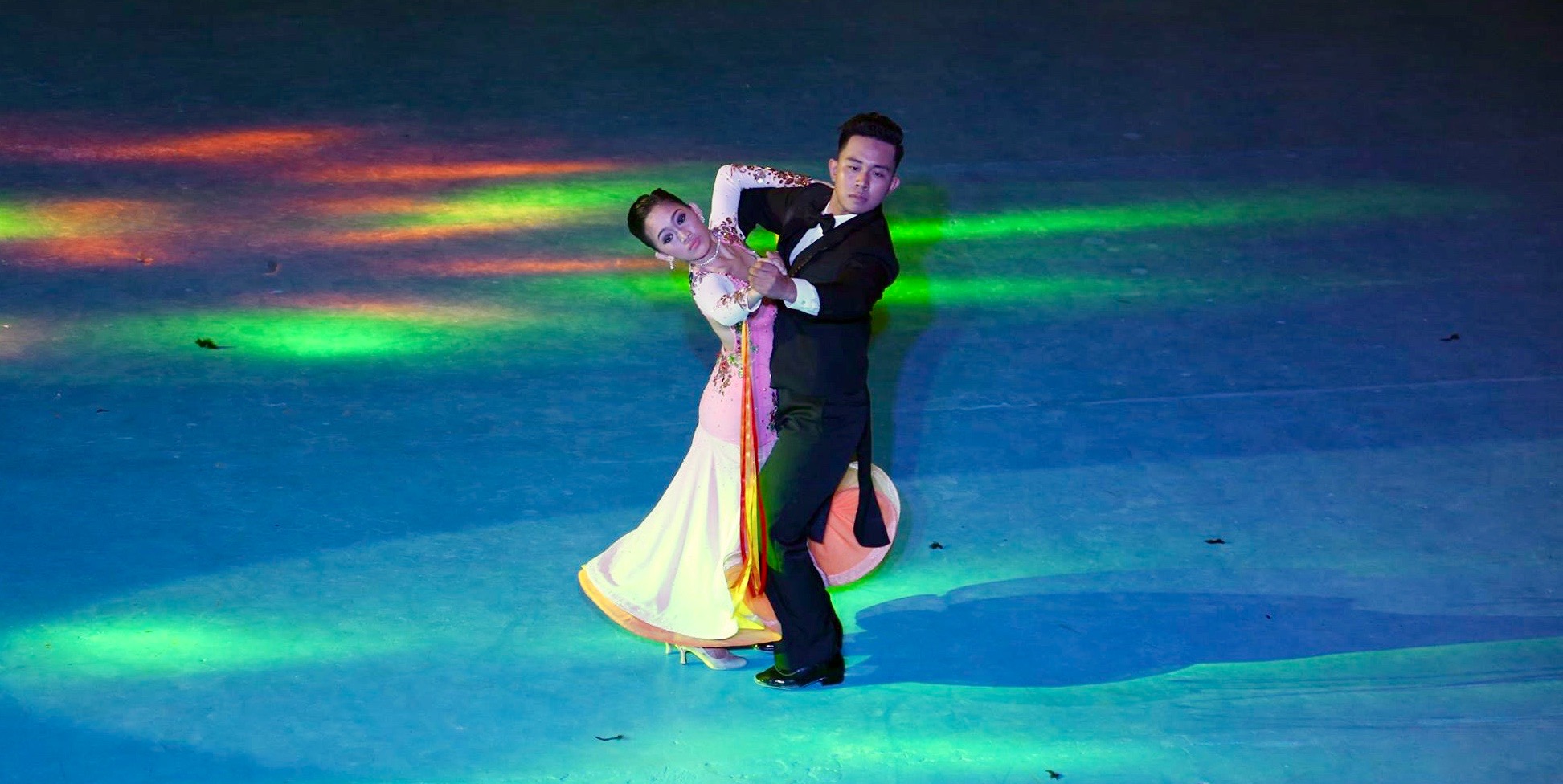Informational
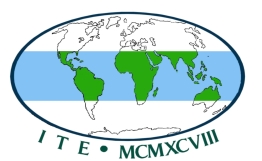
The Institute of Tropical Ecology and Environmental Management has two divisions dedicated to research, development, and extension:
- Terrestrial Ecosystems Division
- Aquatic Ecosystems Division
Vision, Mission, and Goals
Degree Offerings
Bachelor of Science in Environmental Management
Master of Science in Tropical Ecology
Terrestrial Ecosystems Division
- Natural resources management & conservation
- Forest-and agro-ecosystem processes and dynamics
- Biodiversity inventory and conservation
- Environmental pollution assessment and remediation
- Anthropogenic impact on terrestrial ecosystems
- Solid waste management
Research Activities
Aquatic Ecosystem Division
- Community-based coastal resources management
- Environmental restoration and rehabilitation
- Resource stock assessment and mapping
- Aquatic ecosystem process and mapping
- Environment impact assessment
- Aquatic biotechnology
- Oceanographic/limnologic database establishment
- Aquaculture/mariculture
Research & Extension Activities
ITEEM Trainings, Seminars, and Workshops
Collaborations/Linkages
The Department of Forest Science, on behalf of CFES, is envisioned to serve as a prime mover in the pursuit of the national and global concern for sustainable management and conservation of forests and other natural resources. This is pursuant to the mandate given to CFES, VSU, in particular by the Commission on Higher Education (CHED), as a Center of Excellence in Forestry Education in the Visayas.
Degree Offerings
Bachelor of Science in Forestry
Fields of specialization:
-Agroforestry
-Silviculture
-Vegetation Science
-Farm & Community Forestry
-Socio-economic Forestry
-Watershed Management
-Forest Management
-Parks & Wildlife
Master of Science in Forestry
Fields of specialization:
-Agroforestry
-Forest Management
-Socio-economic Forestry
-Phytosociology & Vegetation Science
-Silviculture
-Watershed Management
-Parks & Wildlife
-Environmental Management
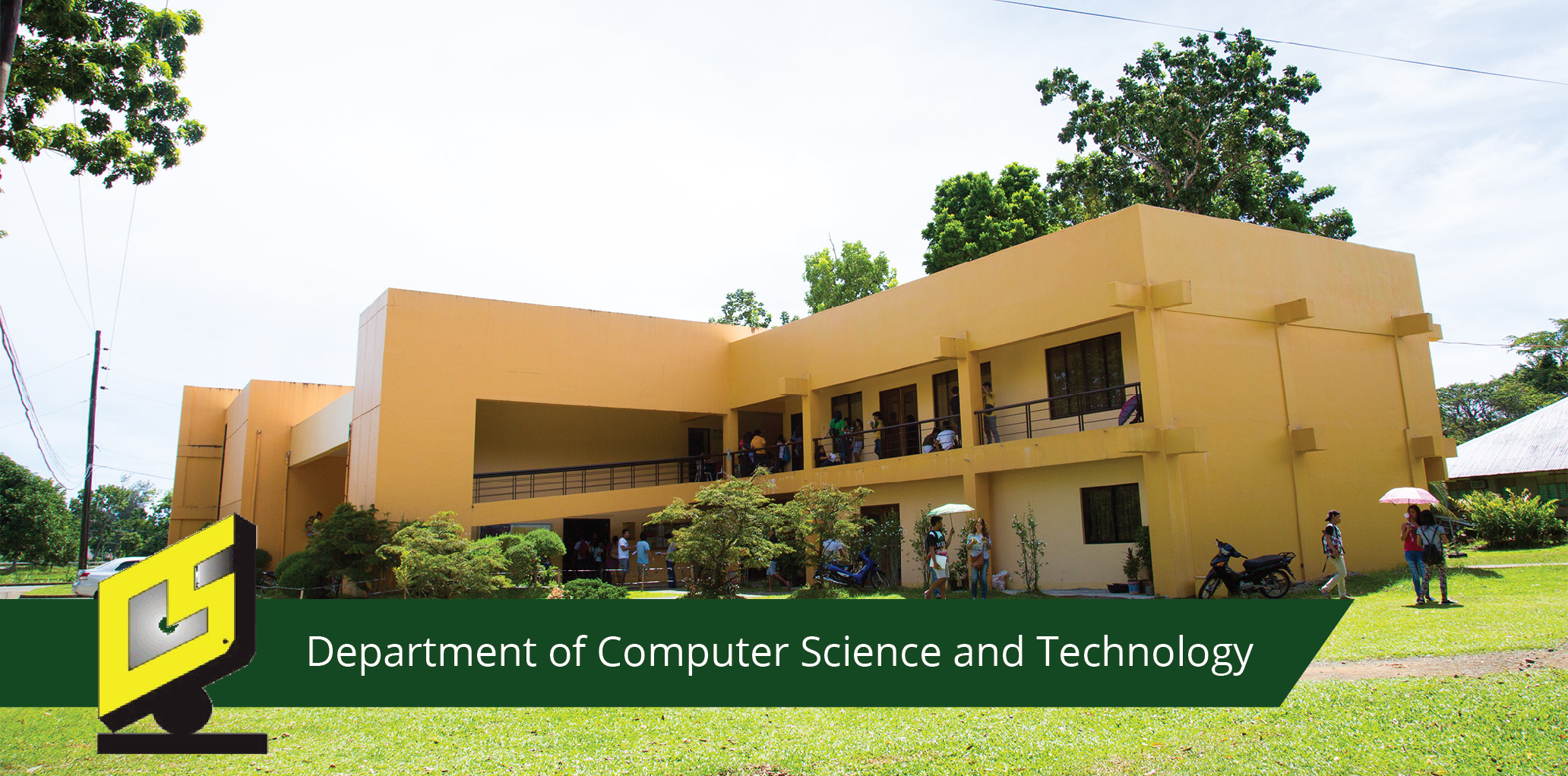
The need to provide greater access to computer education for the youth in the region has led VSU to develop a curricular program on computer science and establish the Department of Computer Science and Technology. The curriculum is designed for students who want to study computing in-depth, focusing on the software and hardware, and the underlying theory of computing and its applications to scientific and technical problem-solving.
DCST aims to equip students with the technical know-how in software development. Students enrolled in this program will be able to apply computer science theory in practical situations, and understand the social and ethical issues that arise from the increased use of technology in the society.
Vision, Mission, and Goals
Course Offered
Bachelor of Science in Computer Science

The Department of Mechanical Engineering aims to contribute to the local economy and development of the country by training individuals to constitute the strong manpower resource of the nation in the future. DME offers a ladderized Mechanical Engineering curricular program and the Bachelor of Science in Mechanical Engineering curriculum since 2010.
Vision, Mission, and Goals
Course Offered
Bachelor of Science in Mechanical Engineering
Student Development
Learn about the opportunities that await a Mechanical Engineering student here.
The Department of Geodetic Engineering is one of the best-performing academic departments at VSU owing to its 100% passing rate in the licensure examinations. Graduates from this department have since topped in licensure examinations and have been in-demand in companies.
DGE offers both Certificates in Geodetic and Geomatics Technology (CGGT) and Diploma in Bachelor of Science in Geodetic Engineering.
Vision, Mission, and Goals
Course Offered
Bachelor of Science in Geodetic Engineering
Research Development and Extension Agenda
1. Land resources security and sustainability through proper land use planning and management.
2. Resources mapping and inventory as a tool for disaster risk reduction and climate change mitigation.
3. Community capability enhancement through seminars, training, workshops, consultancy and other services.
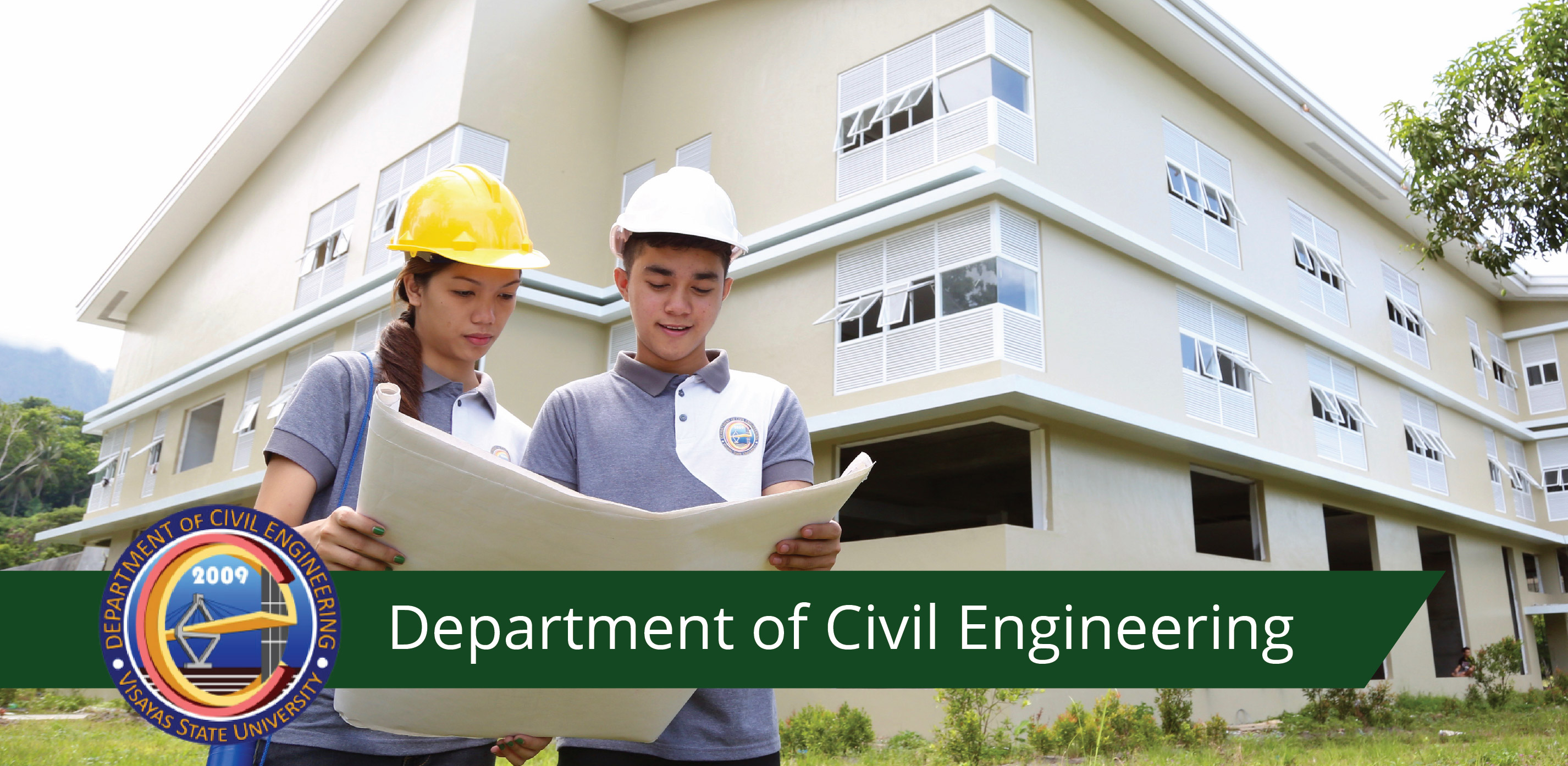
The Department of Civil Engineering is mandated to provide an integrated educational experience in mathematics, basic sciences, and civil engineering design as well as provide students with the knowledge and skills in construction. VSU started offering the civil engineering curriculum in 2008. Albeit relatively new, the department has since earned at least an 85% passing rate in professional board examination for civil engineers.
Vision, Mission, and Goals
Course Offered
Bachelor of Science in Civil Engineering

The Department of Agriculture and Biosystems Engineering is a center of excellence in education and research in agricultural engineering in the Visayas. In 2000, it was recognized by the Commission on Higher Education as one of the country's centers of excellence in agricultural engineering. DABE offers both the Bachelor of Science in Agricultural Engineering (BSAE) and Master of Science Agricultural Engineering (MSAE) with three specializations. With its solid and integrated functions in instruction, research and extension, and production, the department has produced top-notch graduates who perform well in professional board examinations.
Vision, Mission, and Goals
Courses Offered
Bachelor of Science in Agricultural Engineering
Master of Science in Agricultural Engineering
Facilities
DAE is equipped with lecture and laboratory rooms including the farm shop, machinery, and crop processing labs, the Conventional Energy Center, the Agro-Meteorological Station, and the Soil Erosion Lab. Facilities of the department include universal testing machines, universal radial flow machines, surveying equipment, tractors, rice mill, metal and lathes, and other metal and wood working machines.
Student Development
Learn about the opportunities that await an Agricultural Engineering graduate here.
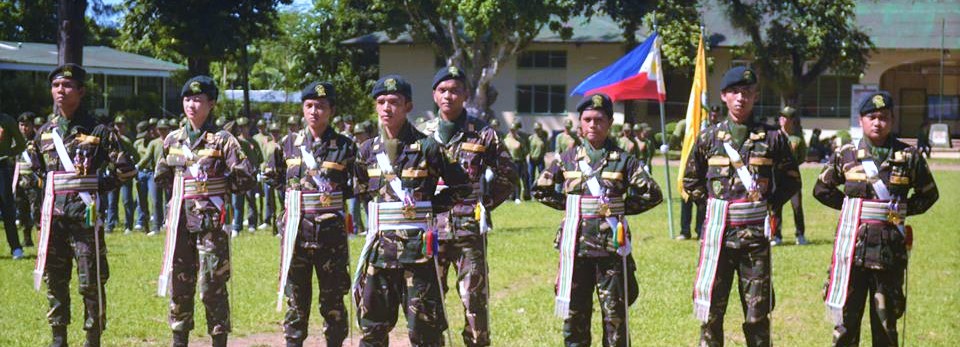
Vision, Mission, and Goals
NSTP Program Components
- Reserve Officers Training Corps (ROTC) - designed to provide military training to tertiary level students in order to motivate, train, organize and mobilize them for national defense preparedness.
- Civic Welfare Training Service (CWTS) - refers to activities contributory to the general welfare and the betterment of life for the members of the community or the enhancement of its facilities, especially those devoted to improving health, education, environmental, entrepreneurship, safety, recreation and moral of the citizenry and other social welfare services.
- Literacy Training Service (LTS) - is designed to train the students to teach literacy and numeracy skills to school children, out-of-school youth and other segments of society in need of their services.
Coverage and Duration of NSTP
All incoming freshmen students, both male and female, starting School Year (SY) 2002-2003, enrolled in any baccalaureate and in at least two (2) year technical-vocational or associate courses, are required to complete one (1) NSTP component of their choice, as a graduation requirement. The NSTP shall be undertaken for an academic period of two (2) semesters, credited for three (3) units per semester and with contact period from 54 to 90 hours per semester.
Male college students currently enrolled, who have not taken any program component of the previous Expanded ROTC are covered by the NSTP law
Male college students who have taken only one (1) semester of the Basic ROTC or EROTC/NSP shall take one more semester of any of the NSTP components to qualify for graduation.
Male students who have completed two semesters of the Expanded ROTC (E-ROTC) or National Service Program (NSP) are deemed to have complied with the NSTP requirement.
The Institute of Human Kinetics focuses on human movement studies and teacher training in music, arts, physical education, and health. It strives to develop individuals committed to the pursuit of excellence in these areas, and who are able to translate knowledge into actions and values necessary in the improvement of the quality of life.
Vision, Mission, and Goals

Programs
I. The Intramural Program
The program aims to provide opportunities for all students and faculty and staff to engage in an annual university-wide team sports competition that will contribute to camaraderie, team-building, and a healthy lifestyle.
II. The Varsity Program
Students who are highly skilled undergo a series of try-outs and training in a particular sport/event they wish to join. Qualified students will become members of the Varsity team. A qualified athlete enjoys the following benefits:
- Exemption from PE classes
- Free comprehensive fees
- Free playing uniforms
- Allowance during athletic meets
III. Recreation Program
The IHK's recreation program is geared towards developing a healthy lifestyle among Filipinos through varied fitness activities. IHK organizes a VSU Fitness and Wellness Program conducted every 4:00-5:00 PM, every Tuesday and Thursday, for all faculty and staff.
IV. The Extension Program
IHK offers its facilities to all. IHK faculty and students initiate programs such as sports, dances, and recreational activities for out-of-school youth, children, young adults, and families in neighboring communities of VSU.
Government and private agencies may request the following services:
- Sports Clinic (Basketball and Volleyball)
- Sports management tournament
- Physical Fitness Programs
- Dance Instructions (Phil folk Dance, Foreign Folk Dance, Ballroom and Line Dancing)
- First Aid Training
- Swimming, Water Safety, and Lifesaving Lessons
- Sports Management
IHK also offers summer classes and clinics for Taekwondo, Basic Piano, Guitar, Voice, Dance, and Table Tennis, Badminton, Basketball, Ballet, Rhythmic Gymnastics, Running, and Camping.
Student Development
Join clubs and organizations that will give you more support in developing your potential and honing your skills. Plus, you will also gain more friends.
Vision, Mission and Goals
Employment Opportunities
- Extension workers or supervisors
- Community development officers
- NGO field workers or community organizers
- Managers of rural development projects
- Community project planners, evaluators, or consultants
- Sales representatives
- Teachers
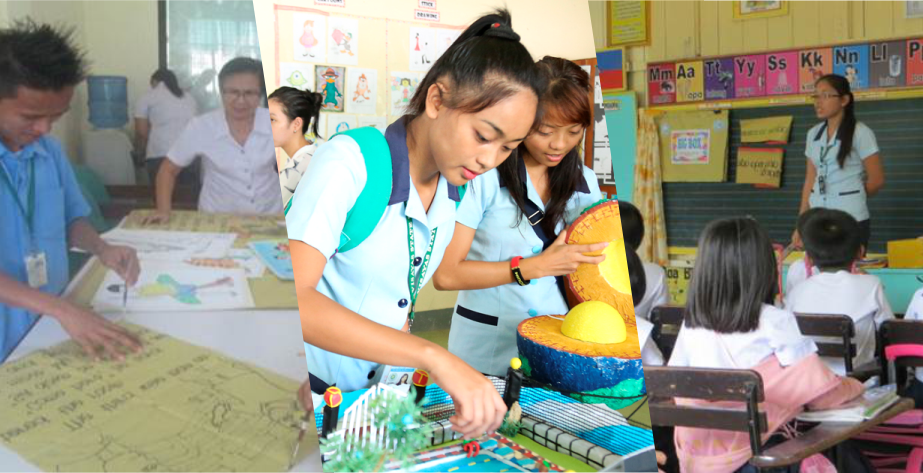
At the Department of Teacher Education, we train students to become effective and competent classroom managers at the elementary and secondary levels. The Department offers majors that are in demand in local and international educational institutions. It caters to the demands for professional education courses especially in Bachelor of Elementary Education major in pre-school education and Bachelor of Secondary Education major in Biological Sciences, Filipino, Music, Arts, Physical Education and Health, Mathematics, and Physical Sciences.
Goals and Objectives
Course Offerings
Bachelor of Elementary Education major in:
Bachelor of Secondary Education major in:
- Biological Sciences
- Physical Sciences
- Filipino
- Mathematics
- Music, Arts, Physical Education, and Health
Master in Education major in:
- English
- Physics
- Chemistry
- Physical Education
Entrance Examination
1st Semester: 2nd Saturday of February and 1st Saturday of April
2nd Semester: 1st and 2nd Saturday, December
Requirements:
- Original Copy of Form 138 (Report Card)
- General Average of at least 85%
- Subjects in English, Math, Science, and Filipino should not be less than 80%
Services Offered
- Conducts training to Elementary and Secondary DepEd Teachers
- Conducts Extension Services to adopted schools and nearby communities
- Organize Education Students Conference (EdsCon)



